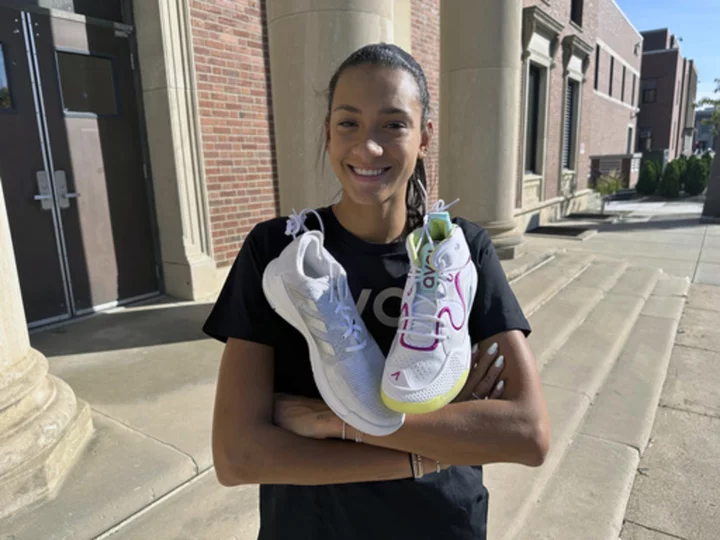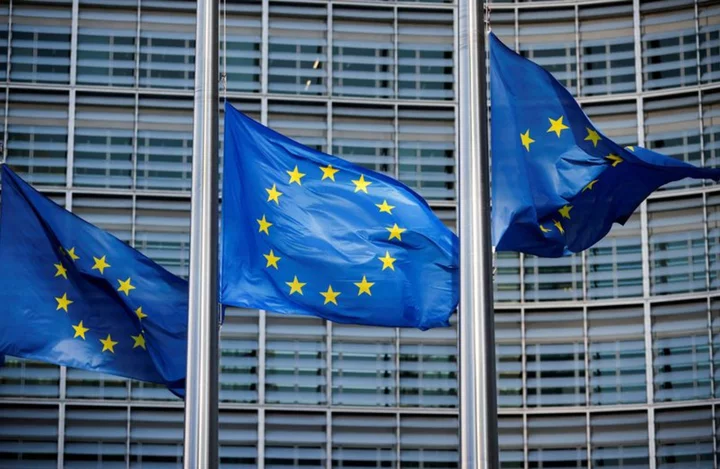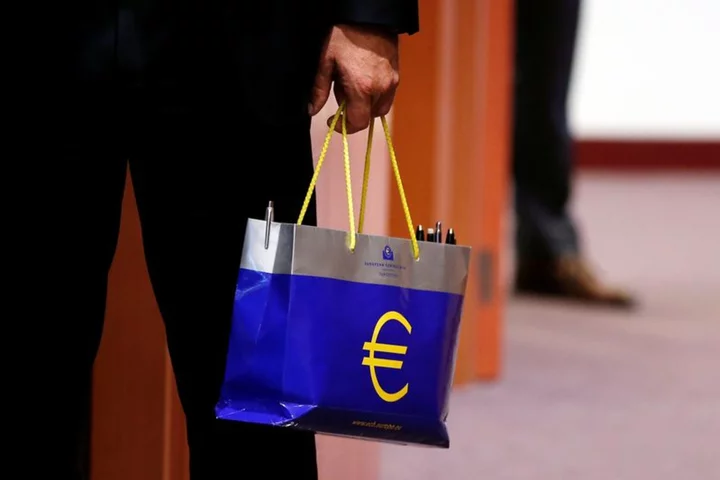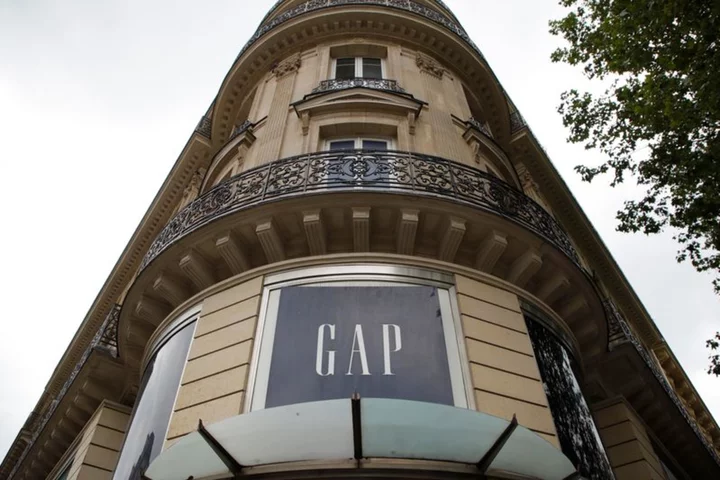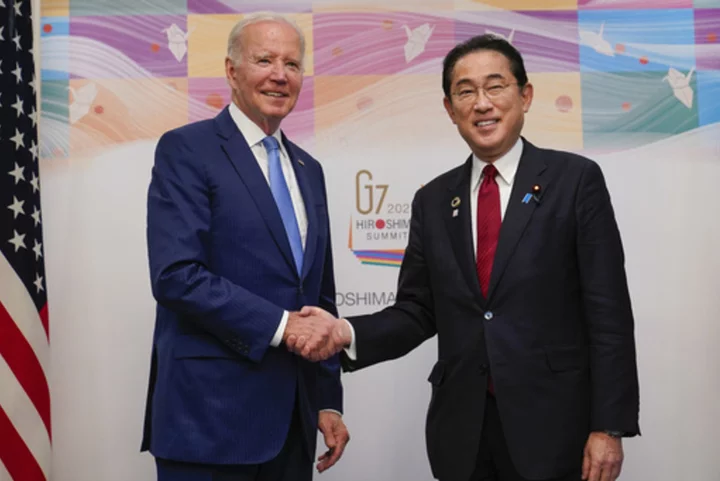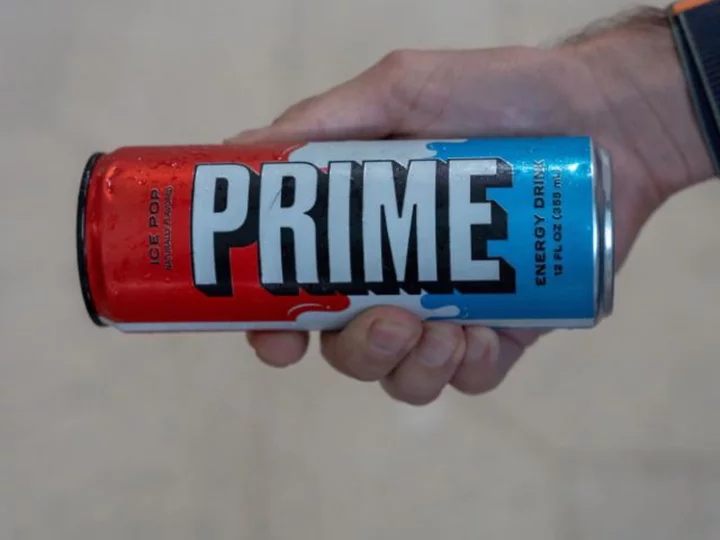LINCOLN, Neb. (AP) — Harper Murray puts on her Adidas volleyball shoes when she practices or plays in a match for Nebraska, one of the top teams in the country. It's not necessarily the brand she would choose to wear; it's because the German company is her school's official supplier and athletes, coaches and staff are required to wear its products.
Texas's Reilly Heinrich and Virginia's Ashley Le wear Nikes because their schools are under contract with the shoe giant. Heinrich actually wears basketball shoes bearing the familiar swoosh because she says they fit better than Nike's volleyball shoes.
All three also are brand ambassadors for a new volleyball shoe brand, Avoli, which they promote on social media platforms as part of their name, image and likeness compensation deals with the startup based in Portland, Oregon, also the hometown of Nike.
The three can tout Avoli all they want, but it is highly unlikely they will ever wear the brand when they actually represent their schools in competition. It's a familiar and seemingly immovable hurdle for athletes in many college sports. While they now have the freedom to earn money from NIL endorsements, they remain beholden to terms of apparel contracts paying millions to their schools and nothing to them.
Murray, the No. 1 high school recruit last year and already one of the top players for the nation's second-ranked team, said she accepts she must wear Adidas as part of playing for the Cornhuskers.
“I think if I had the option to wear another shoe, I’d 100% pick Avoli,” she said. “Obviously, that’s not really an option.”
It should be, according to Ramogi Huma, the executive director of the advocacy group College Athletes Players Association. He said college athletes should be able to wear shoes of their choice.
Limiting athletes to the brand with which their school is affiliated creates two problems, he said. First, it prevents athletes from achieving their full NIL earning potential because they can’t wear the shoes in competition, when they get the most attention. Second, an athlete’s performance could be compromised if the shoe she's wearing doesn't fit properly.
“It’s a health and safety issue,” Huma said. “If your foot is being squeezed, that’s a problem. Look at volleyball players. A lot of them are tall, and they may have wider feet than the average person. Everybody is made differently.”
Footwear is an issue in any sport, Le said, but the movements associated with volleyball make it critical to have the right fit.
“Volleyball is one of the most jumping-related sports,” she said. “The shoe — especially with ankle stability and the ability to move laterally and vertically without feeling in danger of hurting yourself — is very important.”
It would be rare for a college athlete to wear a shoe other than the school sponsor's brand.
For example, the Adidas contract with Nebraska says if an athlete experiences injury, pain or discomfort serious enough to affect performance, Adidas will be given an opportunity to remedy the problem. If the problem persists, the athlete can wear another brand but its logo must be covered. Nike contracts have similar language. Typically, an independent physician must verify the athlete's need for an exception.
Missouri in 2021 considered but did not pass an amendment that would have allowed athletes to wear shoes of their choice in mandatory team activities. New Mexico passed a bill last year giving athletes freedom to choose their shoes but that language was removed during the 2023 session; state Sen. Antonio Maestas, one of the original bill’s co-sponsors, said he did not know how that happened.
Nebraska's Murray said she has switched between volleyball and basketball shoes over the years. Heinrich said she wore volleyball shoes she didn't really like when she was a high school and club player and settled on Nike basketball shoes at Texas because she found they gave her foot more support. Le has worn volleyball shoes since she was little, mainly because she found basketball shoes to be too heavy and wide for her.
The athletic shoe giants all have lines of volleyball shoes, but Avoli co-founders Mark Oleson and Rick Anguilla said their brand is fully dedicated to what they believe is an underserved market. A feature of the Avoli shoe are tiny holes in the soles to provide ventilation, something young players said they wanted.
Oleson and Anguilla, who have years of experience in various aspects of the athletic shoe business with different brands, declined to criticize their giant competitors.
“Are they making bad volleyball shoes?” Oleson said. “I would say what we’re doing is we’re making a very specific volleyball shoe for the female athlete, how she moves, jumps, squats, pivots, dives and how she’s basically going to live throughout her entire tournament.”
Sophie LeRoux, a spokeswoman for Adidas, said in an email that her company's volleyball shoes are "built with a women's first approach” and designed in collaboration with professional and amateur players. Adidas has partnerships with volleyball federations in Europe and China as well as throughout North America.
LeRoux declined comment on the company's sponsorship contracts with colleges. Nike did not respond to messages.
Anguilla said Avoli is content to sell its volleyball products to younger players and is not worried about penetrating the college sponsorship market.
“With somebody like Harper Murray or any of the athletes we've signed to NIL deals, they’re reaching 25, 50, 100,000 people on their social media,” Anguilla said. “When we start thinking about the audience, NIL is going to really impact the value of those all-school contracts long-term. If we can use athletes to bring awareness to our product, and if the product is great, we like that equation.”
That doesn't help athletes who can't wear the shoes they would like in competition. Harper said she has no problem with Adidas shoes. She just likes the support and feel of her Avolis better.
The matter of shoes is personal to Huma, a former UCLA football player who said he had to have foot surgery in 1996 because of ill-fitting shoes.
Huma said college athletes should get a cut of the revenue from school apparel contracts and that, as partners with the schools, athletes could agree to wear socks, wristbands, headbands and other accessories under those contracts.
Shoes, Huma said, are different because certain brands don't always provide an optimal fit.
“Wearing the same jersey isn’t going to be an issue when it comes to your health," he said. "Shoes? That matters a lot.”
___
AP college sports: https://apnews.com/hub/college-sports

